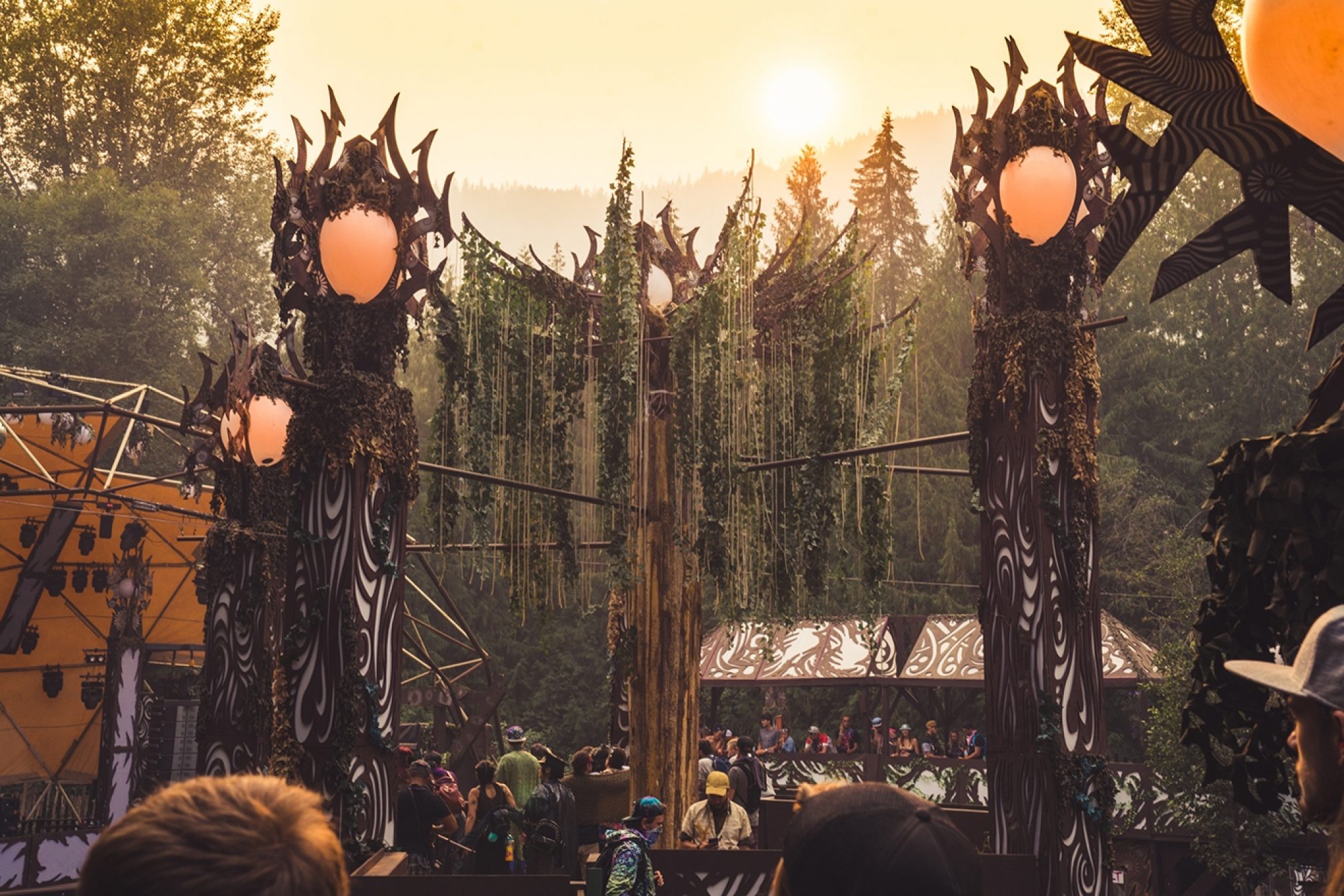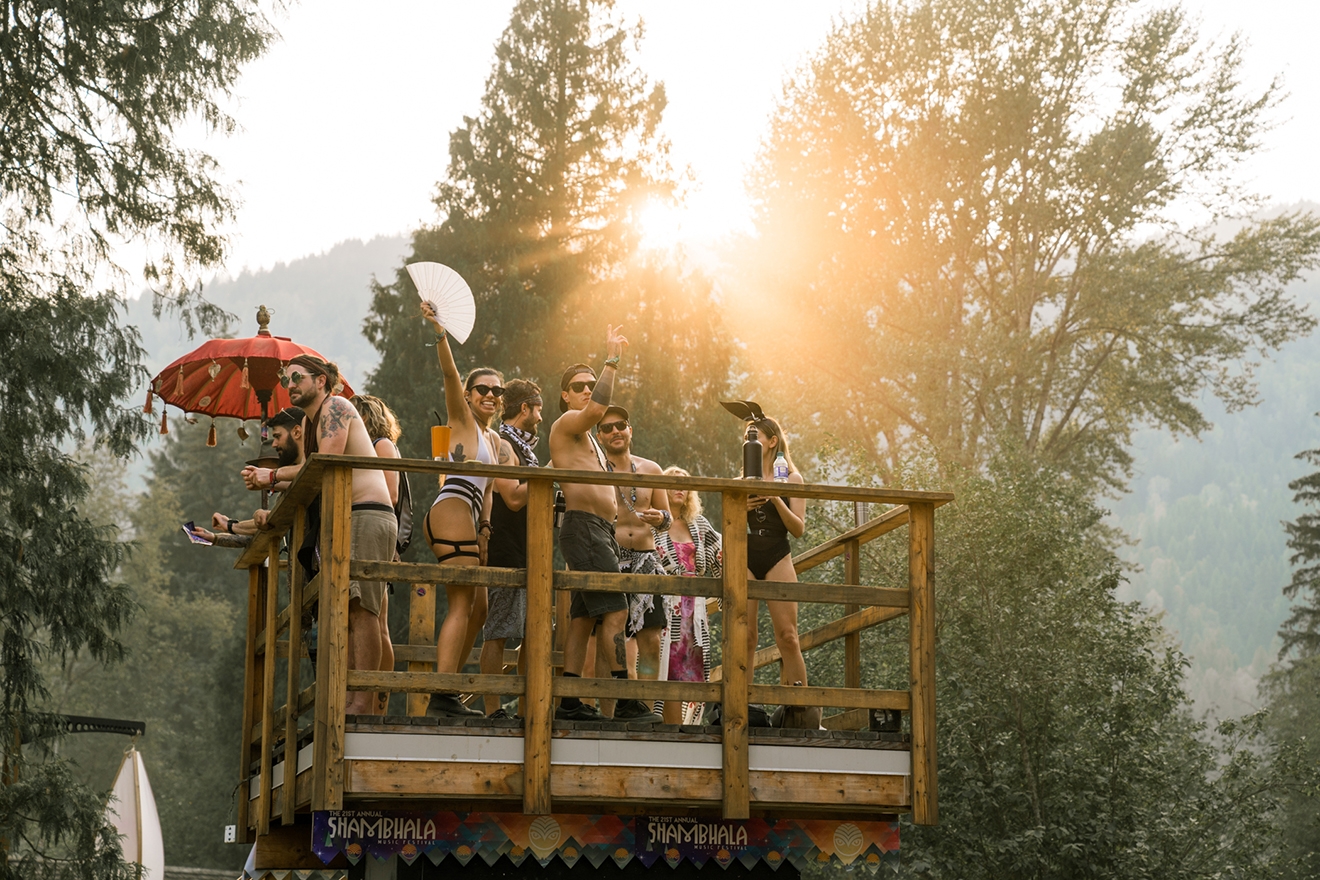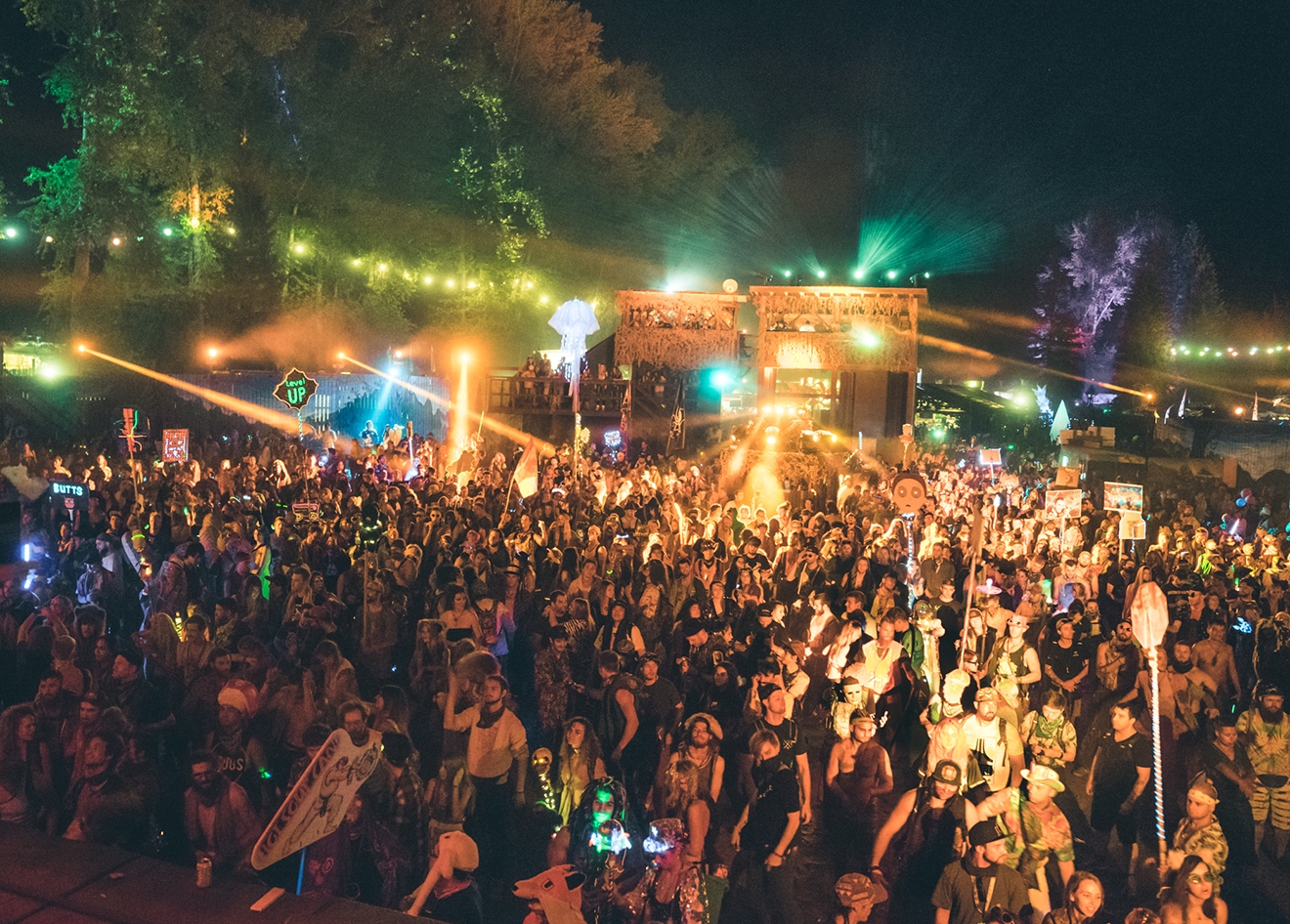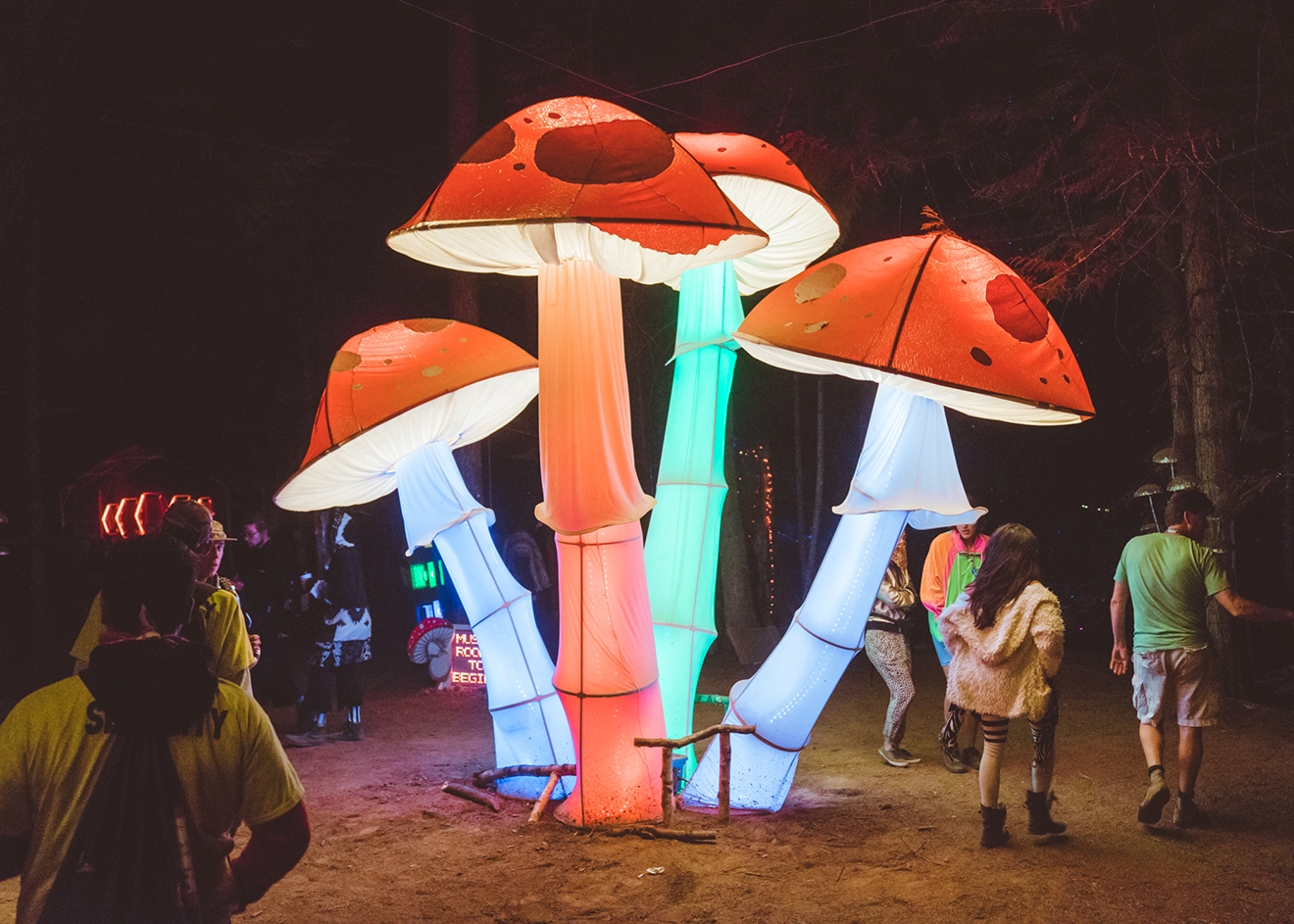
Shambhala breaks the festival mould, time and time again
With two decades under its belt, this Canadian festival is a pioneer in harm reduction
It’s a sultry summer night somewhere in the Kootenay Mountains near Nelson in British Columbia. Normally, it’s as quaint as it sounds: the area surrounding the vibrant, heritage city described as a “hidden treasure” is encased by a lake to the West and mountains to the East. This weekend, however, that image of idyllic bliss is shaken away by a booming quake of bass pouring out from PK and Funktion 1 speakers. The trembles wobble the surrounding conifers as lasers dance across the natural backdrop of the Canadian wilderness. This oasis of bass-forward electronic music is Shambhala, nestled in a cathedral of trees on a privately owned 500-acre ranch nicknamed “The Farm”. With 21 years under its belt, it’s no surprise that the festival leads as one of the most coveted immersive campout events in the world.
“It must be about 10 times [I’ve attended Shambhala],” says UK turntablist and festival veteran, Adam Mills, who flies under the artist name A. Skills. “I haven’t skipped one for seven years. They’ve kept it real and steered the ship [to give] festival-goers the most organic experience.”

The Shambhala “ship” is one that’s unlike any other. To over 16,000 “neo-hippies”, this festival is church, and the music is God. It’s common for attendees to be adorned in geometric tattoos and fine handmade garb devoid of commercial brands as they peruse art and yoga workshops. They’re more likely to know about the details of living a wellness-focused life rather than don a tutu at a flashy rave, but the common ground they share spread across seven stages that host a wild, fiery variety of electronic names.
Each of the seven stages of Shambhala acts as an autonomous entity, booking their own diverse roster and line-up of artists. At the Pagoda, REZZ blasts her record-breaking crowd with explosive canons of bass, which scream back at her with equal, if not higher energy. Elsewhere, Shambhala favorite Rich-E Rich signed on for the long haul with his annual closing set at Fractal Forest, ending things on a high, nostalgic note with classic rock and disco tones as his crowd embraced and celebrated being the last ones standing by sharing dancefloor gifts like fruits and candy.


Beyond its unique crowd and community, what makes Shambhala stand out - and what has also garnered the most headlines around the event - is its decision to be an alcohol-free event with a radical stance on drug policy. The festival acknowledges that, in lieu of a drink, one might stumble upon a small, rectangular bag on the floor filled with mysterious white powder and encourages indulging attendees to take advantage of their harm reduction facilities. Shambhala is a pioneering festival in North America in that sense, with onsite testing facilities available for those who choose to partake.
ANKORS is a not-for-profit organization on-site at Shambhala that offers harm reduction services at music festivals with the aim to reshape the way drug use is moderated. In a time when fentanyl overdoses are on a concerning uptick, it’s the matter between life or death. “Last year we found 31 fentanyl positives. This year we found zero,” says ANKORS coordinator, Chloe Sage. “That does not mean all the drugs are pure or safe - we found plenty of misrepresented or cut drugs. [Instead, it’s a] relook at how we do our harm reduction messaging. People spend so much [time] focusing on what could be added to the drug, but we must remember the drugs have risks all by themselves.”

Across the United States, and specifically on the West Coast, the electronic music scene has long been villainized thanks to a media accustomed to running away with headlines about drug-related deaths at raves, putting the music and the culture at fault. Shambhala approaches this stigma carefully, emphasizing that the presence of ANKORS and harm reduction isn’t meant to endorse the use of illicit drugs, but provide knowledge and education to yield better results for health and safety. Through their partnership with ANKORS, Shambhala has seen a noticeable difference in the purity of drugs tested and a reduction in overdoses and hospitalizations. Their progressive attitude towards the festival environment (offering a no-questions-asked SOS helpline for any medical or security needs) is paving the way for festivals across North America to follow in suit, slowly but surely. “We are seeing more of a bloom than an explosion in the drug checking movement in Canada right now. It’s very exciting,” Sage adds.
There’s something undeniably magic about a festival placed meticulously in the cradle of the woods, and Shambhala is living proof of the legacy that comes with that magic. But aside from pounding beats and good times on the dancefloor, the festival has taken an important responsibility upon itself, committing to the community and the rosy utopian idea that it can be fun, and safe, too.
[Photos: Miles Najera]
Morena Duwe is a Los Angeles-based journalist, outdoor enthusiast and festival junkie. Read more of her work here.


